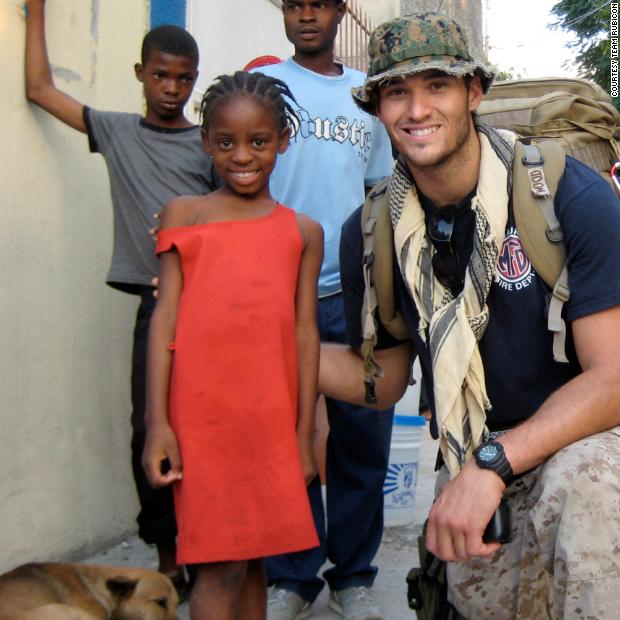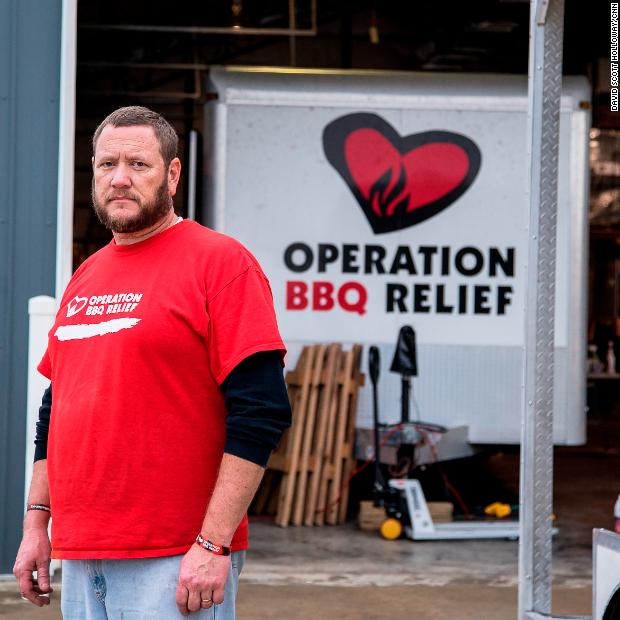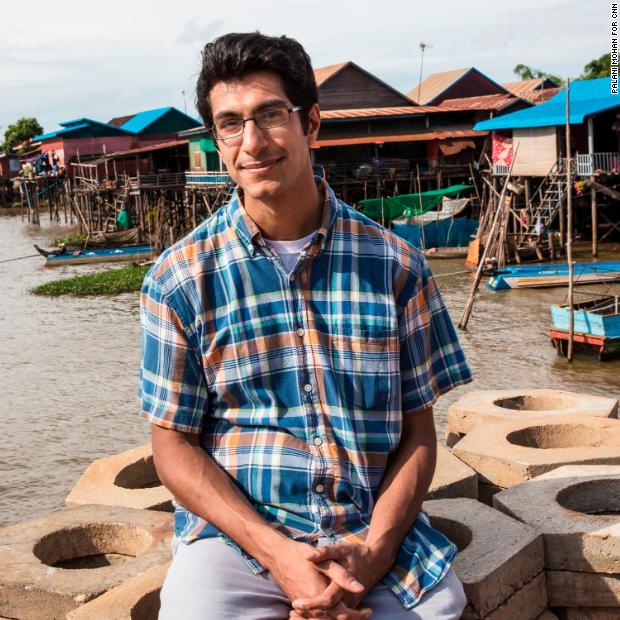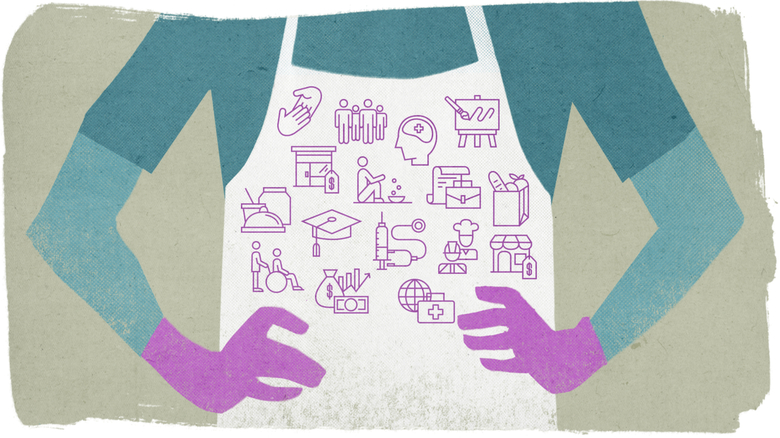[ad_1]
Arts & Culture
How to give
The Actors Fund: TAF provides financial relief and promotes economic security for performing arts and entertainment professionals.
The Actor’s Fund of Canada: The AFC’s emergency assistance fund will help help Canadian arts and entertainment professionals maintain their health, dignity and ability to work through the crisis.
American Guild of Musical Arts Relief Fund: The AGMA is a labor union that represents artists involved in America’s operatic, choral and dance heritages. Their relief fund will support members who have lost opportunities and income during the coronavirus crisis.
ArtsFund COVID-19 Arts Emergency Relief Fund: This fund will help stabilize the arts sector in Seattle, where the coronavirus has been especially devastating.
Broadway Cares: This nonprofit helps vulnerable people in the performing arts community, and has created an emergency fund for creative industry workers in New York who are impacted by the coronavirus crisis.
CERF+: This is a nonprofit organization that builds financial security for artists in craft disciplines (like metalsmithing and sculpting) , and provides advocacy and education opportunities. They have a fund specifically for artists affected by the coronavirus crisis.
The Entertainment Industry Foundation: Among other things, the EIF helps people in the entertainment industry raise funds and awareness and advocate for positive change in times of crisis. Their Coronavirus Fund will provide relief to vulnerable people in the industry.
The Foundation for Contemporary Arts: The FCA, which promotes and supports innovative and emerging artists, has an emergency fund to support artists who have lost income from canceled performances or exhibitions.
MusiCares: This charity, established by the National Academy of Recording Arts and Sciences, provides relief to music industry professionals in times of crisis. Their Coronavirus Relief Fund is supported by major tech and streaming companies like Pandora, Spotify and Youtube Music.
Commit: Purchase an annual membership to your favorite arts venue, museum or cultural heritage site to show them you’re in it for the long run.
Collect: Support local artisans by buying their work as gifts, or purchase other merchandise to support local acts.
Follow: Your favorite arts venue may be offering in special online programs during coronavirus restrictions. Follow and interact to show they’re making an impact.
Tune in: Search for and participate in virtual events from your favorite musicians or venues (even museums and galleries may offer some).
Seniors & people with disabilities
How to give
The Arc Foundation: The Arc advocates for the rights of individuals with intellectual and developmental disabilities. Their COVID resources also provide ways to get politically active and stay in touch with your local health authorities.
Humanity & Inclusion: International COVID-19 response teams are being dispatched for people with disabilities and vulnerable populations, and will provde hygiene kits, traveling social visits and psychological support.
Meals on Wheels: This network of over 5,000 community programs provides meals, visits and safety checks to seniors during the coronavirus crisis.
The National Council on Aging: Donations to the NCOA help provide older adults with food, medicine, utilities and other necessities.
Deliver food: Help a senior citizen in your community by delivering a meal through Meals on Wheels.
Write a letter: Search for a senior center, memory care center or nursing home in your area and e-mail or call them to let them know you’d like to write some letters. They can let you know any specific requests, and where to send the finished product. (This works even better if several people participate.)
Check in: If you have elderly neighbors or friends, call them to see how they’re faring. Offer to do some non-contact chores, like putting the trash out, getting the mail or mowing the lawn.
How to get help
Get active: The National Institute on Aging, a branch of the National Institutes of Health, offers a set of low-impact workout videos specifically designed for seniors.
Get informed: The National Council on Aging has a hub for everything older adults need to know, including information about coronavirus scams and how to get benefits assistance.
Get connected: Lonely? Call the Institute on Aging’s toll free friendship line to get support, advice or just a someone to talk to.

What CNN Heroes are doing
Iraq war veteran and 2012 CNN Hero Jake Wood is the founder of Team Rubicon, a nonproift that brings military veterans together to help communities in disaster. Team Rubicon is asking local volunteers to help neighbors by doing little things like dropping off supplies or checking in on the elderly. They’re also coordinating response efforts through Health and Human Services around the country to provide logistics plans, and establish and operate testing centers in as many as 37 communities worldwide.
Meals and food support
How to give
World Central Kitchen: Founder Chef José Andrés is turning the kitchens in some of his restaurants into community kitchens offering free to-go lunches for those in need.
Blessings in a Backpack: This organization helps feeds school children across the US, and is partnering with districts that have summer feeding programs to extend services while schools are shut down.
Feeding America: With a network of 200 food banks across the US, this organization is helping food banks support communities impacted by the pandemic.
Food Pantries.org: Use this national database to locate food pantries in local communities that you can contribute to.
GENYOUth: They are providing grants to schools to supply resources for meal distribution and delivery so students can be fed even when they are not at school during the coronavirus crisis.
Little Free Pantry: This organization is standing ready across the US, giving 24-hour neighborhood access to food and other necessities.
Meals on Wheels: Meals on Wheels provides home delivery of food to seniors. The organization faces an increased need for volunteers and donations right now as many seniors find themselves more isolate and in need than usual.
Save the Children: Actresses Jennifer Garner and Amy Adams have teamed up with Save the Children to launch #SAVEWITHSTORIES. The program is providing children in America’s poorest communities with nutritious meals, books and other learning resources during the outbreak closures.
United Way: They are using their COVID-19 Community Response and Recovery Fund to stock food banks with essential staples to help feed children who rely on schools for meals.

What CNN Heroes are doing
Stan Hays, one of CNN’s Top 10 Heroes for 2017, founded Operation BBQ Relief, which delivers hot meals to veterans and the homeless in various parts of the country. The BBQ Relief team is mobilizing Covid-19 efforts in Kansas City, with plans to bolster their meal delivery services in other states through the various stages of the coronavirus crisis.
Homeless communities
How to give
Coalition for the Homeless: The Coalition for the Homeless is providing temporary housing and meals in New York City, where the magnitude of the coronavirus outbreak has left unhoused people especially vulnerable.
Covenant House: This human rights organization focuses on homeless youth and is taking donations to help protect youth across the country who are especially at risk during the coronavirus outbreak.
The Salvation Army: The Salvation Army is working with local, federal and medical leaders to provide coronavirus response, and has a fund to assist with food, help with utilities and provide safe shelter to homeless and disadvantaged people affected by the crisis.
Donate food or funds: Find a local shelter in your community and contact them to see what they need, such as non-perishable goods, clothing or basic supplies.
Stay in touch: Like other vulnerable communities, unhoused people will face serious challenges even after the coronavirus outbreak is over. Consider volunteering or making another commitment in the future.
Medical efforts
How to give
The CDC Foundation’s Emergency Response Fund: This fund supports the Centers for Disease Control and Prevention’s work by supplying immediate supplies and emergency staffing to state and local communities responding to COVID-19.
Center for Disaster Philanthropy: This resource helps people make intentional and informed giving decisions during disasters. They have created the COVID-19 Response Fund to support first responders, healthcare workers and individuals quarantined.
Cleveland Clinic: The nationally renowned clinic is conducting research on COVID-19 to identify better testing, patient treatment and care and possible vaccines.
COVID-19 Solidarity Response Fund: This is a joint effort by the World Health Organization, UN Foundation and the Swiss Philanthropy Foundation that supports diagnostic testing, treatment and vaccine research and distribution of medical supplies.
Direct Relief: This humanitarian aid organization is providing protective equipment for health workers in the US and China, and is working with regional response agencies in the Caribbean, Central and South America.
Doctors Without Borders: Their professionals and volunteers are preparing vulnerable communities around the world for the impact of Covid-19. They are also supplying many countries with protective equipment, and replenishing medical supplies in critical hospitals in China, Hong Kong and Italy.
Global Empowerment Mission: This relief and education organization is providing masks to hospitals and hygiene kits for both medical professionals and the general public.
HealthWell Foundation: This foundation helps underinsured people afford medical care, and has opened a fund to help with ancillary costs for individuals at risk or quarantined due to Covid-19.
International Medical Corps: This organization of first responders is providing training, supplies and emergency medical response planning for at-risk countries.
La Jolla Institute for Immunology: Scientists in their network of laboratories is already reporting progress in mapping COVID-19 and is continuing their research to develop new therapies and potential vaccines.
MedShare: So far, MedShare has delivered more than 2.8 million masks, 200,000 isolation gowns and other essential medical supplies to hospitals, clinics and healthcare professionals battling against COVID-19.
UNICEF USA: UNICEF USA is delivering medical supplies to health workers around the world. They are also providing hygiene and medical kits to schools and health clinics to help keep children safe.
United Way Worldwide: United Way’s COVID-19 Community Response and Recovery Fund bolsters their “211“ information line which provides callers with resources, vital services and support during the pandemic.
Donate medical supplies: MedSupplyDrive is helping individuals and medical labs donate protective gear to hospitals in their area. Several national craft and sewing groups are also making masks to send to healthcare workers.
Donate Hand-Sewn Face Masks: Got a sewing machine at home? You can help by sewing cloth masks. The CDC cautions that fabric masks cannot be used in the care of COVID-19 patients, but are helpful in other areas of patient care since other forms of medical protective equipment are exhausted.
Mental health
Be a listening ear: Volunteer to be a crisis counselor for the Crisis Text Line. The help line has reported a dramatic increase in texters mentioning the virus, with 80% feeling anxious. Helping others with the stress of this pandemic, through programs like this, or through neighbors and family, can benefit your own wellbeing too.
How to get help
Get informed: The Centers for Disease Control is offering a list of resources and guides for managing stress, anxiety and how to cope through the Covid-19 pandemic.
Get support: Free 24/7 crisis support is available by texting The Crisis Text Line at 741741. Online volunteers are also needed to help others as crisis counselors.
Get together: American Addiction Centers is hosting free virtual support meetings. They will be based on traditional 12-step meetings, hosted by a person in recovery, and topics or meeting types will vary based on the group’s preference.
Get help: The National Domestic Violence Hotline has posted a “Staying Safe During COVID-19“ guide for survivors and their families. Trained counselors are also available by phone 24 hours a day at 1-800-799-SAFE (7233) and by chat at www.thehotline.org.
Know you’re not alone: The National Suicide Prevention Lifeline can be reached at 1-800-273-TALK (8255). They have also compiled this guide for Emotional Wellbeing During the COVID-19 Outbreak. Additional resources can be found at SpeakingOfSuicide.com/resources.
Refugees and international relief
How to give
Alight: Teams are providing lifesaving health care, clean water and other support to safeguard the vulnerable communities.
American Jewish Joint Distribution Committee: The JDC is ensuring the safe provision of supplemental food, medicines, medical care, hygiene supplies and training, as well as the deployment of programs to battle loneliness and retrain the unemployed.
Americares: This is a health-focused relief and development organization that responds to people affected by poverty or disaster with life-changing medicine, medical supplies and health programs.
COVID-19 Solidarity Response Fund: This is a joint effort by the World Health Organization, UN Foundation and the Swiss Philanthropy Foundation supports diagnostic testing, treatment and vaccine research and distribution of medical supplies.
INARA: Founded by CNN Senior International Correspondent Arwa Damon, INARA is providing hygiene and food packages to Syrian refugee families who have lost their only income and have no savings. They are currently distributing in Syria and expanding to Lebanon and Turkey.
International Rescue Committee: The coronavirus can thrive among groups of people fleeing conflicts or political unrest. The IRC is providing additional protective gear, increasing funding to minimize supply chain disruptions and bringing in more medical staff across affected areas.
Project Hope: This humanitarian NGO has mobilized teams in high-risk countries, to help support doctors and nurses on the front lines of the fight to save lives.
UNICEF: With offices in over 190 countries and territories, UNICEF is delivering assistance to children across the areas affected by COVID-19.

What CNN Heroes are doing
In 2017, Samir Lakhani was named one of CNN’s Top 10 Heroes for his work with his non-profit, the Eco-Soap Bank. Lakhani’s organization recycles discarded bars of soap from hotels and distributes them to people in need in Cambodia. Now, the Eco-Soap Bank is distributing soap to vulnerable communities to help stem the spread of COVID-19.
Restaurants & food workers
How to give
James Beard Foundation: This foundation, named after the legendary food writer, started a Food and Beverage Industry Relief Fund to provide micro-grants to independent food and beverage small businesses in need.
National Restaurant Association Educational Foundation: This foundation has established the Restaurant Employee Fund to help restaurant industry employees experiencing hardship in the wake of the coronavirus outbreak.
United States Bartenders Guild: The USBG is offering emergency grants for bartenders, their spouses, or their children through the Bartender Emergency Assistance Program.
James Beard Foundation: This foundation, named after the legendary food writer, started a Food and Beverage Industry Relief Fund to provide micro-grants to independent food and beverage small businesses in need.
How to get help
Get advice: The reservation app Seated has launched a hotline for restaurant owners to get advice from finance and law experts in the hospitality industry.
Get publicized: Yelp is waiving advertising fees and offering free advertising, products and services for independent local restaurant and nightlife businesses.
Order takeout or delivery: Order meals from your local restaurants and tip generously! (Yes, experts agree that ordering takeout is safe during the outbreak.)
Here is a guide to restaurants offering take-out and delivery:
- Grubhub: The delivery company has suspended fees for their restaurant partners, and proceeds from their Donate the Change program are going to the Grubhub Community Relief Fund.
Order from your local farmer: Check out options on Local Harvest, or look up your local farmer’s market to see If they have any online or delivery options.
Buy merch online: Some restaurants have online merchandise stores, including t-shirts, sauces, jams and relishes.
Order a gift card and use it later: This is a great idea to support other businesses as well. Hair salons, local shops, tourist attractions and even pet boarding facilities may offer gift cards, so you can show loyalty to local businesses even when you can’t patronize them.
Purchase a “Dining Bond:” The Dining Bonds Initiative is offering gift certificates that work like savings bonds. You buy a bond for less than its face value, and redeem it at some point in the future.
Rally for Restaurants: This campaign encourages diners to buy gift cards, and they will donate one dollar for every social media post to the Restaurant Workers’ Community Foundation and World Central Kitchen.
Local for Later: This aggregator shows you local businesses you can support during social distancing.
Service workers
How to give
PenFed Foundation: The COVID-19 Emergency Financial Relief Program was created by the Pentagon Federal Credit Union to provide financial assistance to all Veterans, Active Duty, Reserves and National Guard who are experiencing a financial setback due to the negative economic effects of the COVID-19 pandemic. They are taking donations, but the applications for assistance are closed.
United Way: United Way has established the COVID-19 Community Response and Recovery Fund to support communities affected by the virus. The fund is set to help keep families in their homes who are currently in a financial crisis, stock foodbanks with essential staples to help feed children who rely on schools for meals.
Salvation Army: The charity is expecting increased emergency financial aid requests from low-wage workers or laid-off employees struggling to make ends meet.
Consider paying ahead for services: Some services, like home cleaning, can be purchased ahead of time and then scheduled later. If you know you’ll use it, go ahead and purchase it.
Send a little tip to your hair stylist or nail technician: If you know them, you probably have their Venmo or other payment information.
Over-tip delivery drivers or other service professionals still on the job: They are likely facing serious pressures and personal risk and could use your appreciation.
Pre-book your next service appointment: Eventually, you’re going to have to get your hair done or your pet groomed. Make an appointment now so the businesses know you’re still with them.
Small businesses
How to get help
Get connected: Nytch is an app that connects local businesses with guests. They are offering free services during coronavirus crisis.
Get relief: Amazon announced a $5 million Neighborhood Small Business Relief Fund to provide cash grants to local Seattle small businesses.
Get facts and funds: Facebook announced a $100 million grant for small businesses impacted by COVID-19 and launched the Business Resource Hub, which features recommendations to help small businesses stay connected to customers and stay on track.
Get gift cards: Fattmerchant, a payment technology provider, has partnered with Gift Up! to allow its clients to sell virtual gift cards. Gift Up! is waiving its usual 3.49% fee for Fattmerchant’s members’ first $5,000 in gift card sales.
Get secure: Security startup Kangaroo wants to support business owners who are unable to be physical present at their offices: They are offering free (for three months) security camera and monitoring kits.
Get opportunities: The Opportunity Fund, which specializes in money lending to small businesses owned by women, immigrants and people of color, is collaborating with investors and nonprofits to put together a coronavirus relief fund that will provide grants and low-interest rate loans to business owners in need.
Shop small: Independent bookstores across the country are offering delivery and curbside pickup. Find out how to connect to local offerings through IndieBound. If you prefer audio books, Libro.fm works with independent booksellers as well.
Buy gift cards: It will provide immediate income, and you get the product later.
- Help Main Street: Allows people to buy gift cards to their favorite stores now with the intention of using them once operations recommence.
- Kabbage: Use this service to buy gift certificates to support small businesses
[ad_2]
Source link

